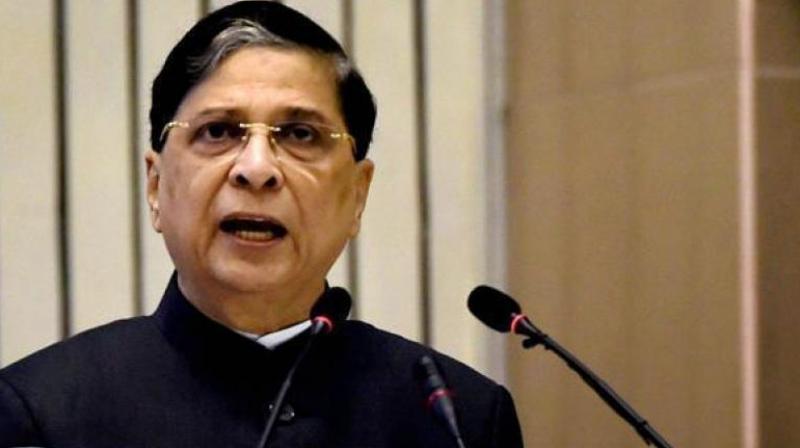On social media rumors, CJI Dipak Misra says citizens must check themselves
The Chief Justice said there was a surge in mob lynching incidents recently based on 'viral texts on social media' leading to 'mobocracy'.

New Delhi: Chief Justice of India Dipak Misra on Tuesday said the blatant reliance on social media needs to be checked by citizens themselves in order to ensure peace and order in the society.
The Chief Justice said there was a surge in mob lynching incidents recently based on "viral texts on social media" leading to "mobocracy".
The Chief Justice of India was delivering the presidential address at a function organised by the International Law Association (ILA), where eminent jurist NR Madhava Menon delivered a lecture on "Courts, Media and Fair Trial Guarantee".
"There is a recent surge in mob lynching, please don't misunderstand me because I have authored the judgement, there is a recent surge in mob lynching based on the viral text on the social media and this leads to mobocracy and loss of individual life, in certain cases.
"The blatant reliance on social media needs to be checked by the citizens themselves; to ensure peace and order in the society," the Chief Justice said.
He said that citizens need to be more responsible and filter the information before relying and acting.
"Indian media houses must introspect and develop a sense of responsibility and maturity. The citizens need to be more responsible and filter the information as per their judgment before relying and acting thereby paving a path to ensure fair trial with greater sense of responsibility," the Chief Justice said.
He also said that freedom of press is the "mother of all liberties" in a democratic society and the media should have its own guidelines for self-regulation.
Justice Misra said freedom of speech played a pivotal role in generating public opinion in matters of national importance, adding that it created an "informed citizenry".
"Freedom of press in a democratic society is the mother of all liberties. There is no doubt it is one of the most cherished and valuable rights guaranteed under the Constitution. It includes the right to know and the right to inform.
"I am of the firm belief that there should be no guidelines (for the media). Let them frame their own guidelines and be guided by that. Nothing can serve better than an individual or collective guidelines of the press. There should not be any imposition, but there should be some kind of self-restriction," he added.
The CJI said the media has the responsibility of maintaining objectivity while reporting on cases that could stir the emotions of the citizens.
Menon said media coverage at times posed a threat to a fair trial at three stages - prior to the trial, during the trial and after the completion of the trial.
He pointed out that disclosing the identity of the witnesses and accused might affect trial in many ways.
Menon said a parallel trial by the media might influence an investigating agency to make arrests and might even cause witnesses to turn hostile.
He added that post-trial, the independence of the judiciary was threatened if the media questioned the integrity of the judge.
"The current CJI does not want any curbs on the media and has, in fact, said in court that he does not want any curbs on the media," Menon said.
He added that the recent development in the apex court regarding live-telecast of proceedings will open up a new chapter in media-judiciary relations.
Supreme Court judge Justice AM Khanwilkar was also present at the event.

